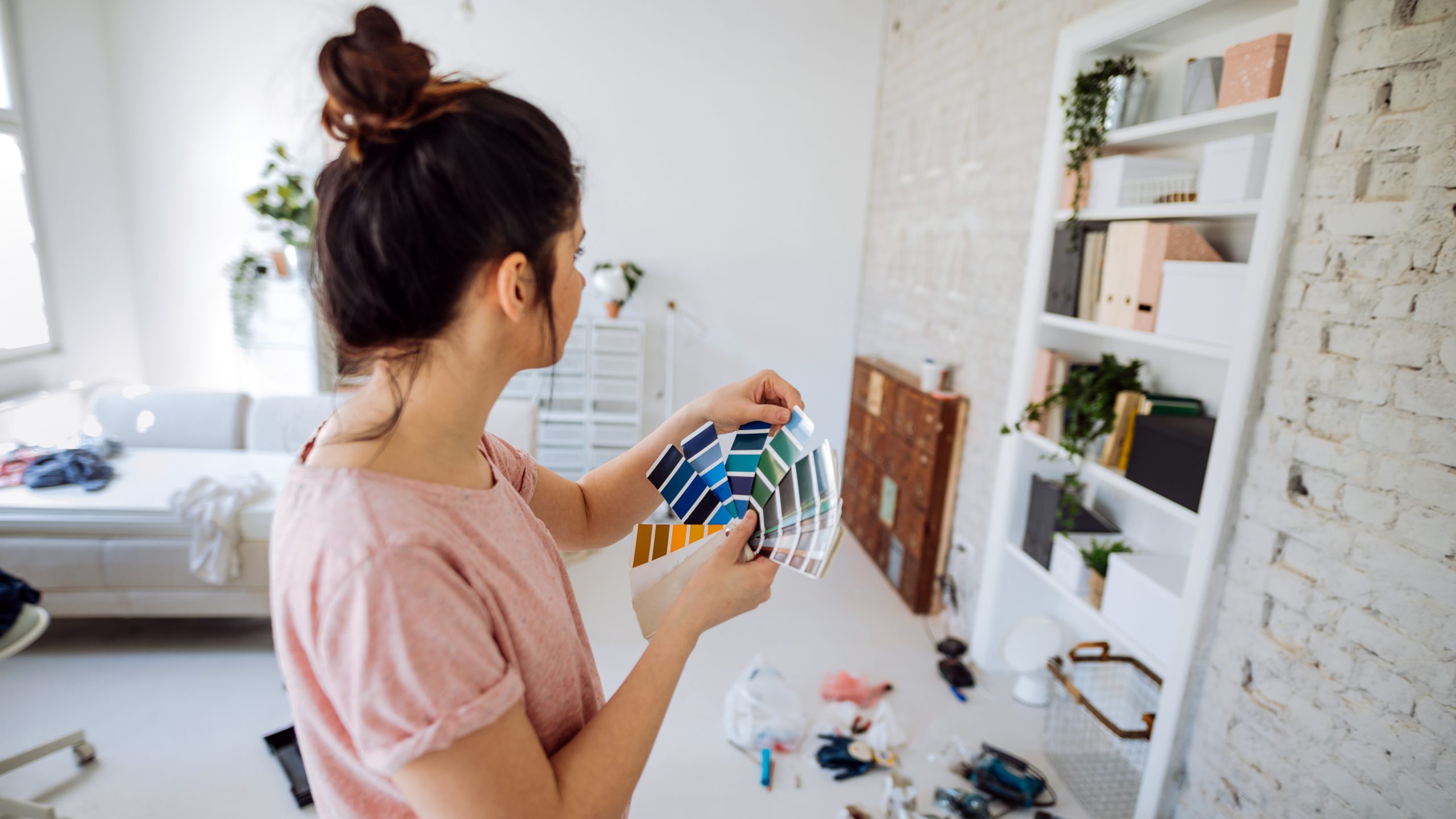
Whether you’re about to sell your home or renovate, there are few better low-budget ways to add some sparkle than a fresh coat of paint.
It’s common to break out the brushes before putting a property on the market because a good paint job hides the bumps and scratches that walls and window and door frames can endure over the years.
Choosing the right colour however can be intimidating. If you’re selling, it’s recommended you opt for soft whites and creams throughout the home. These tones help make rooms feel bigger, whereas rich and bright colours will dominate and shrink a space.
This vanilla-style approach also avoids potential objections from prospective buyers who might not like your taste in colour schemes.
But if you’ve just bought your home or you’re renovating, you can be a little more expressive. If you struggle with colour, here’s a seven-point process for getting your selection right.
- Light it up – If you plan to change your home’s lighting design, do this before you paint. That way, you’ll have a more accurate assessment of how each candidate colour will impact your home.
- Paint with purpose – If you’re testing colours for a wall, then paint on the wall. Don’t use blank boards and hold them against the wall. (Many people do). The texture of the wall and boards will be different. The saturation of the paint into the surface affects the subsequent impression of colour.
- Test different areas – If you’re looking to use the same colour throughout the home or in multiple rooms, don’t restrict yourself to testing one wall. Try candidate colours in different areas.
- Be brave – If you’re going to paint a wall, then it doesn’t matter how many colours you test on it. Eventually, you’ll paint over them anyway. Paint a minimum of one square foot for each colour. The larger the area, the better.
- Keep colours together – Paint the candidate colours close together on the wall as this will give you a more accurate impression of their impact. Between the colours, leave a small gap to place a piece of white paper between them. The white in the paper acts to balance the impression of each colour accurately. It’s an optical illusion trick.
- Lay it on thick – Apply two coats even when testing. If you’re going to paint new drywall or gyprock sheeting, use an undercoat or primer.
- Undercoat tip – If you’re in love with bright colours or plan a feature wall, you’ll get the best result on all surfaces by applying a primer or undercoat.
